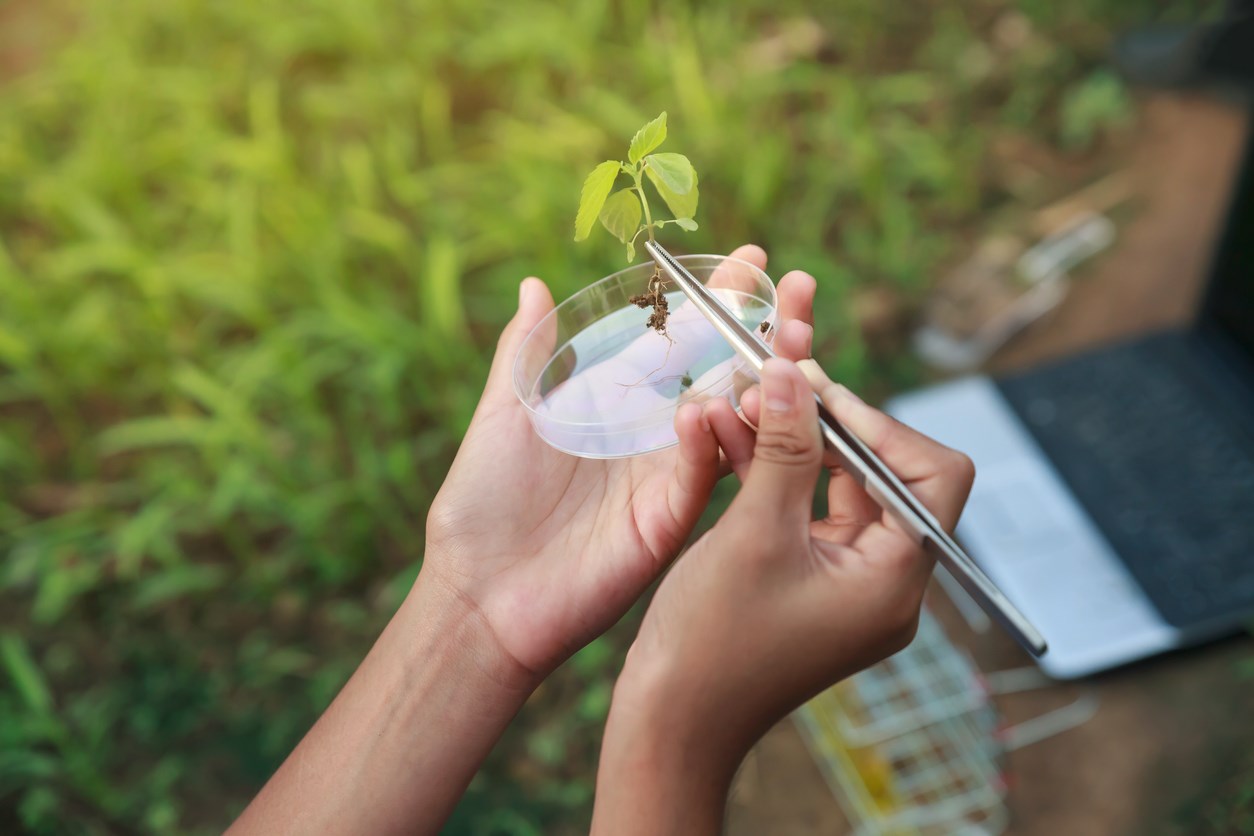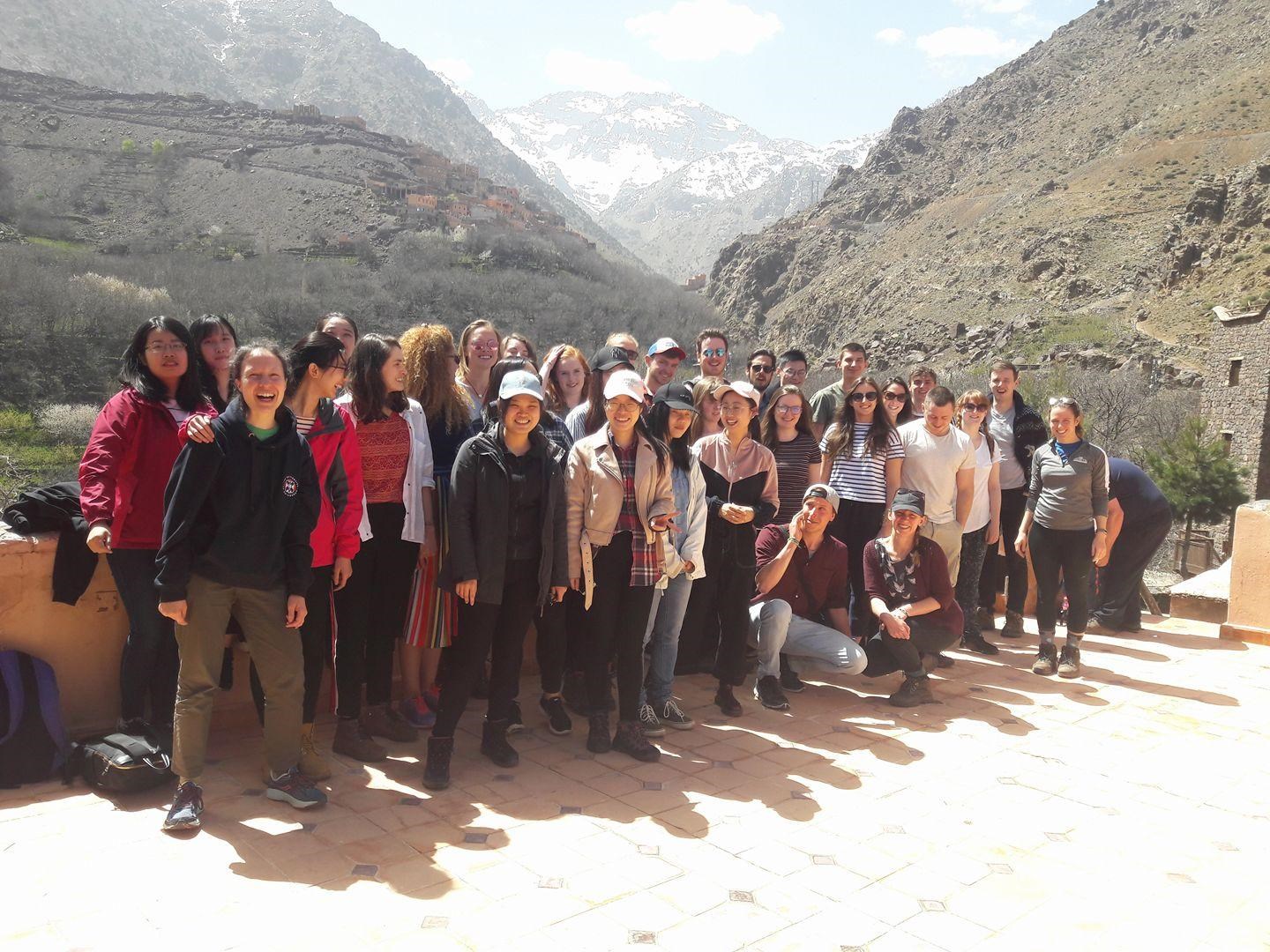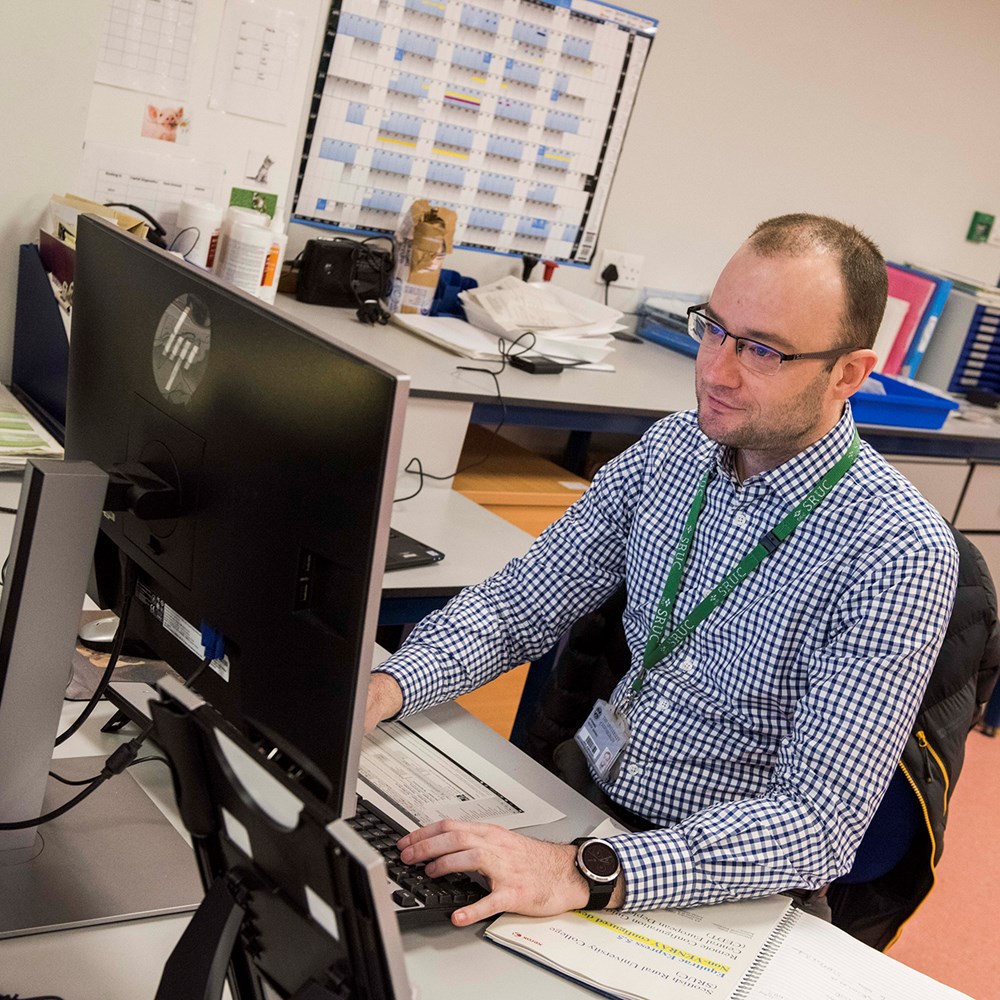Postgraduate research opportunities
SRUC is a unique institution founded on world-class research. We offer excellent opportunities for research leading to a higher degree.


Our impact-focused research aims to address the major challenges of growing global demand for food and nutrition security, climate change and dwindling natural resources. This covers a wide range of scientific disciplines, along with economics, business and resource management. Applicants can view the research areas we provide at each of our Schools by visiting our School of Veterinary Medicine and Biosciences and School of Natural and Social Sciences (coming soon) webpages.
Postgraduate research (PGR) students make a valuable contribution to SRUC’s research programmes. Thanks to close ties with industry, our students benefit from building important networks and enjoy many varied employment opportunities after completing their studies with us. Discover more about our research outputs by visiting our research hub, SRUC’s Pure Portal.
Self-funded or Sponsored PhD Opportunities
Self-funded students and those with scholarships are welcome to apply for SRUC's PhD programme. We offer opportunities to be supervised in projects aligned to your research interests and our expertise. Before applying, you should contact a potential supervisor to discuss your planned research. For information on the types of research we support and to identify potential supervisors, explore the SRUC Research Repository. To apply and for more information, please go the PhD in Agriculture, Rural and Environmental Studies within our course catalogue. We look forward to supporting your research journey.
Funded PhD Opportunities
Our competition-funded applications for 2026/27 entry are now open! Please read the advert below for full details on how to apply to your chosen project.

What We Do
We offer excellent opportunities for research leading to a Doctor of Philosophy (PhD) at SRUC. Completing a research degree programme successfully requires scientific and technical knowledge, project planning, time and resource management. You will also need good communication skills, critical thinking and analysis. We work with you to create a plan, based on a detailed analysis of training needs, that is updated regularly throughout the programme of study. Research students are encouraged to participate fully in the academic life at SRUC. Studying will forge connections and experiences that will be of benefit whether you continue to work in an academic or industrial research environment or elsewhere.
You can find more information on SRUC’s PhD in Agriculture, Rural and Environmental Studies within our course catalogue or learn more by contacting the Doctoral College using the link below.

The Doctoral College
The Doctoral College is responsible for the administration, development, and support of our postgraduate research programme. It provides guidance for PGR students on all aspects of the research journey, from application to completion.
As well as being the first point of contact for PGR students, The Doctoral College helps our postgraduate research community forge connections with networks of peers, academics, and professional services. We strongly believe in promoting inter-disciplinary and entrepreneurial thinking, and this reflects the collaborative ethos across SRUC and our partners.
In more practical terms, the Doctoral College can fund support for research student skills development through the Small Grant Competition. Students can apply for funds to support research-relevant activities or to buy small items of equipment.
The Doctoral College also organises the annual Postgraduate Research Conference. This provides an opportunity for research postgraduates to present various stages of their work publicly and to engage with those from other centres who may be carrying out a project in a similar, or a more diverse, subject area.
PhD studies in SRUC news:
SRUC launches new PhD programme
In a significant step towards shaping the future of agriculture, rural and environmental studies, SRUC has launched a new PhD programme.
Climate change research wins PhD student prize
A postgraduate student at Scotland’s Rural College has won a prize for her research looking at the effects of climate change on European grassland yields.
Shear delight for Alex after Woolmen scholarship
A PhD student at Scotland’s Rural College has been awarded a scholarship from the Worshipful Company of Woolmen.
Find out more about our services

Research news
Have a look at our latest news articles to find out more about our research activities and impact across the globe.


SRUC Pure
You can access our research outputs, learn more about our research team, see our current and past research projects and much more on SRUC Pure.
